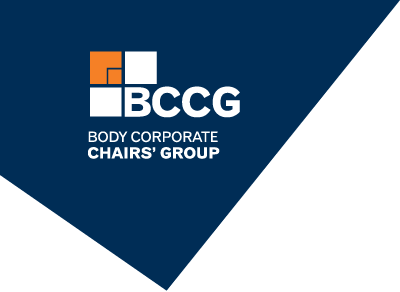COVID-19 Advice for Bodies Corporate
Last updated 14 April 2022
Because COVID-19 is likely to be in our communities for quite some time, we have developed this page to keep members up to date with developments on COVID-19 issues that have a direct impact on our sector.
As time and resources permit, we will add material to this page covering such matters as mask mandates, vaccination mandates, engaging contractors and rule-making powers around COVID-19.
Updated Guidelines for Body Corporate General Meetings under the Covid Protection Framework (CPF)
The Government introduced the Covid Protection Framework (Traffic Light System) on 23 January 2022. The CPF allows greater freedom of movement of people but retains restrictions on certain activities depending on a person’s vaccination status and which CPF level applies in their location.
The whole country moved to the Orange setting on 14 April 2022. Changes under this setting include removing the need for people to show a government generated Covid-19 Vaccination Certificate (CVC), and removing the requirement for QR Code contact tracing. Therefore:
- Body corporate meetings, including General Meetings can be held without capacity limits, indoors or outdoors.
- Owners can elect to attend in person or remotely.
- A Body Corporate or a BC Manager cannot impose any CVC restrictions.
- Masks are strongly encouraged, but not required.
Self Isolation under the Covid Protection Framework (CPF)
Since the country moved to the Covid Protection Framework on 23 January 2022 the Ministry of Health (MOH) has progressively implemented a self-care approach to managing new cases.
The whole country moved to Orange setting on 14 April 2022.Rapid Antigen Tests (RATs) are now widely available and recommended for people who may develop symptoms. If your RAT returns a positive result you are required to self-isolate at home for 7 days.
This is all quite appropriate but the key issues with self-isolating in apartment buildings, set out below, remain. BCCG recommends following the advice provided by the MOH but with a couple of additional suggestion for apartment dwellers.
If your RAT returns a positive result for COVID-19, report your result on-line and follow the instructions you receive from MOH.
If you’re well enough, i.e., you have no symptoms, MOH advises that you may “exercise outdoors in your neighbourhood.” If you do this, please be aware that you must first exit your building and in doing so put your neighbours at risk. Take care therefore, when leaving and returning to the building to:
- wear a mask,
- wash/sanitise your hands before leaving your apartment,
- avoid touching surfaces (if possible),
- avoid contact with other people in the building – maintain physical distancing
- avoid using the lift (if possible)
Note that you are not obliged to provide your Body Corporate with your health status, but we recommend making contact with your chairperson of a committee member. They may be able to support you in some way in your isolation. You may also wish to post a notice on your door advising your neighbours and visitors to manage their risk and contact you by phone rather than face-to-face.
Self-Isolation in an Apartment
As body corporate members well know, self-isolation in an apartment is very different from self-isolation in a standalone home. The BCCG National Executive is concerned that whilst it is possible to self-isolate in an apartment, a good many apartment buildings are simply not suitable for self-isolation. Not all apartment buildings are suitable for self-isolation and Public Health authorities need to consider a range of additional criteria when assessing the suitability of self-isolation at home for a person who lives in an apartment building. The four most compelling criteria are:
- Most apartments open on to ‘common property’ – most stand-alone homes do not.
- The person self-isolating will need to be supplied with fresh food – they cannot shop for themselves, contactless deliveries by a third party will need to be arranged.
- Special arrangements will be required for waste/rubbish removal. Bagged rubbish left outside the door must be considered contaminated, so collection and disposal must be pre-arranged.
- Finally, and most difficult to address, many apartment buildings are airconditioned. Does each apartment have its own closed airflow system or is airflow common to other parts of the building?
News: 1-March-2022
The Ministry of Health has today released a revised version of its COVID-19 guidance on home-isolation in apartment buildings. Key changes include that from 1 March 2022, people self-isolating will be no longer be monitored by the Public Health Service. Instead it is recommended that cases and household contacts self-isolating in apartments make contact with, and work with, the nominated person acting as the COVID-19 point of contact for their apartment building. This Liaison/Conduit person will work with the case and household contacts in the apartment building on how best to support them during their isolation.
Two new documents have been released:
- Guidelines for Isolating in Apartments – Version 3
- Omicron in the community: What this means for you
Please download and review these documents, and make them available within and among your communities as widely as possible.
For further information on self-isolation and other COVID-19 health advice please refer to the Ministry of Health website.
News: 22-December-2021
The Ministry of Health has today updated its COVID-19 guidance on self-isolation in apartments. The guidance was prepared in consultation with the BCCG.
Three new documents have been released:
- Guidelines for Isolating in Apartments – Version 2
- Self-isolation Guidance for Temporary Accommodation Providers (incl. Airbnb), and
- A Fact Sheet – Isolating in Apartments & Temporary Accommodation


















